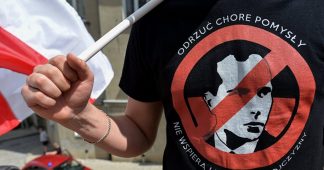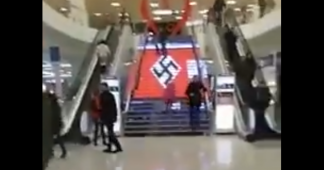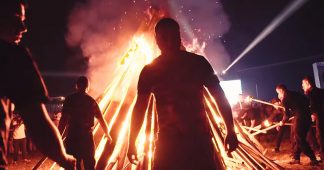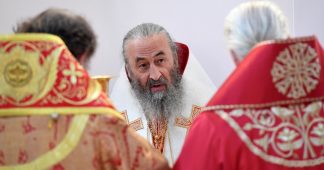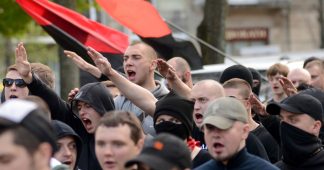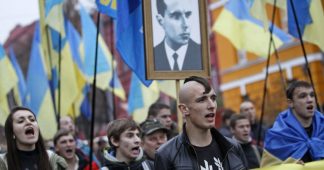1 Jan, 2021
Thousands of people with torches marched through Kiev on Sunday on the first day of the new year to honor Ukrainian nationalist Stepan Bandera who collaborated with Nazis during WWII and actively participated in ethnic cleansings.
Bandera was born on January 1, 1909 and rallies celebrating his birthday recently became a sort of a tradition in the Ukrainian capital and other cities after the Euromaidan protests in 2014. They’ve since been staged with the blessing of the country’s authorities, who declared the day a national holiday.
The participants of the march in Kiev carried torches, Bandera’s portrait as well as flags of Ukraine and the country’s nationalist and neo-Nazi organizations. Some came to the event with children.
A huge banner held by those at the front of the procession reproduced a famous nationalist slogan which calls for Bandera to come back from the dead and bring order to Ukraine.
Other chants heard during the march included “Nationalism is our religion. Bandera is out prophet” and “Glory to Ukraine, glory to heroes!” The latter was a motto of Bandera-led units during World War II that was redeemed by Ukrainian nationalists and is now officially used in the country’s military.
The march concluded at Independence Square (Maidan) in the heart of the city where the participants had a moment of silence to honor their ‘hero’.
Bandera was the leader of the Organization of Ukrainian Nationalists (OUN) and its armed wing, the Ukrainian Insurgent Army (UPA), which collaborated with the Nazis and fought against the Armia Krajowa of Poland and the Red Army in Western Ukraine during the final years of World War II.
UPA is responsible for the deaths of thousands of people, mainly Polish women and children, in Volhynia and Eastern Galicia during the merciless campaign of ethnic cleansing. The group also took part in Nazi operations against the Jews.
Bandera managed to flee after his cause failed and eventually settled in Munich where he continued to promote the idea of a “free Ukraine,” independent from the Soviet Union. In 1959, he was assassinated.
Russia, Poland, Israel and other countries, which consider Bandera a war criminal, have been strongly opposing Kiev’s attempts to turn him into a heroic figure. He was proclaimed ‘Hero of Ukraine’ in 2010, but the title was stripped by a court several months later amid a vast international outcry.
Published at www.rt.com
